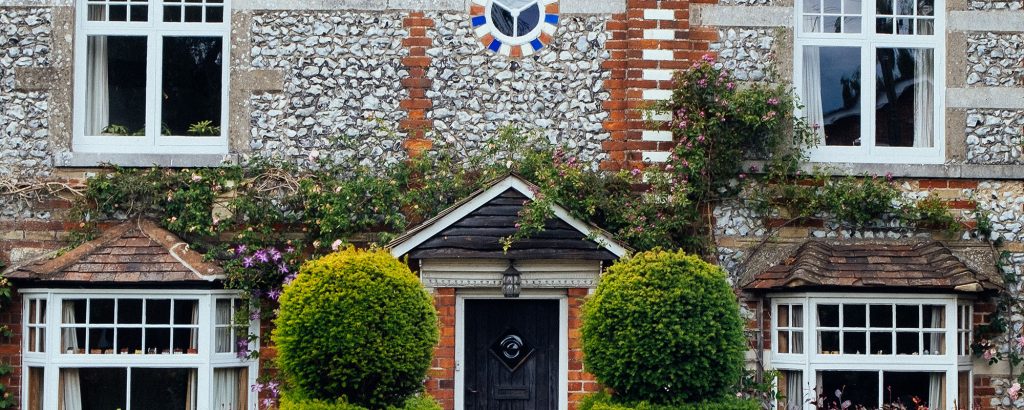
Do you really need buildings insurance and, if so, when should you get it? Here, we’ll detail what it covers, whether it’s a legal requirement and how it affects you as a homeowner or a landlord.
What is buildings insurance?
Buildings insurance covers the costs of repairing or rebuilding your property should it be damaged or, in a worst-case scenario, destroyed. The structure of your property and its fixtures, such as a fitted kitchen and a bathroom suite, are covered. Depending on the terms of your policy, external structures and items are also covered. These can include a garage, greenhouse, shed, drains, cables, fences and pipes, for example.
The events that you can be covered against include fire, explosions, flooding, storms, burst and frozen pipes, fallen trees, subsidence, vandalism, theft and vehicle collisions. You may also be covered for plumbing and central heating issues. If these aren’t included as part of your cover, you can add them as extras.
The optional add-ons to your buildings insurance cover
As well as everything that’s included in your standard policy, you can also opt for additional cover. Accidental damage cover, home emergency cover and legal services cover can give you extra peace of mind.
- Accidental damage cover: This covers the costs of repairs relating to unintentional damage, such as a smashed window or having accidentally drilled through a pipe.
- Home emergency cover: If you have a home emergency, such as faulty electrics, a broken boiler or broken window locks, this offers financial protection. The costs of an emergency call-out for a tradesman and the repairs are covered. The cost of overnight accommodation is also covered if you can’t stay in your property while the work is being carried out.
- Legal services cover: You can benefit from legal advice and services as well as the payment of legal costs with this cover. You’re covered for numerous issues, such as a compensation claim if someone has suffered an injury while on your property or a dispute with a neighbour about the property boundary. It also applies to issues that are unrelated to your property, such as an employment dispute. Your loved ones are covered too if you include this in your policy.
Buildings insurance when you’re buying a property with a mortgage
Having buildings insurance isn’t a legal requirement. However, if you’re about to buy a property with a mortgage, your lender will require you to have it in place. At the point the contracts are exchanged, you are legally bound to purchase the property in Bexley and are, therefore, responsible for insuring it. The seller must notify you of any damage that happens to the property between exchange and completion. The repairs, however, are your responsibility. The damage could be something small, such as a broken window. It could also be a more serious issue, though, such as a burst pipe.
Without insurance in place, there’s no protection for the lender’s equity should something happen to the property. That’s why it’s essential to have buildings insurance arranged in readiness for the exchange of contracts. If you haven’t arranged your cover in time for this, you risk the lender withdrawing their mortgage offer.
Buildings insurance when you don’t have a mortgage
Although having buildings insurance isn’t compulsory, you’ve no doubt spent a lot of money on your home in Bexleyheath. It’s more than likely your biggest asset so it makes sense to protect it financially. Even though paying for buildings insurance is another expense, it’s a lot cheaper than having to pay out for unexpected damage that may be caused by a fire or a flood, for example. Should the worst happen and your home is destroyed, your buildings insurance will cover the cost to rebuild it.
Buildings insurance when you’re a landlord
If you’re buying an investment property with a buy-to-let mortgage, you’ll more than likely be expected to arrange buildings insurance by the lender. Even if you own the property outright, it’s still advisable to have buildings insurance in place. You’re responsible for the building and should there be any structural damage, the cost of any repairs will be covered. This can save you a lot of money in the long run. Without any insurance to cover you, you’ll have to pay for the repairs out of your own pocket. This could end up being very expensive.
As well as arranging buildings insurance, you should consider having contents insurance if you’re letting your property in Pimlico as fully furnished. Although your tenants will need to arrange contents insurance for their own belongings, you can have contents insurance in place to cover the costs of any repairs needed for damage caused to your furniture.
You may prefer to opt for landlord insurance. This type of home insurance provides financial protection for your rental property’s structure as well as your contents. It can also cover you for a loss of rental income, accidental damage and legal costs.
Have a financial safety net when you arrange buildings insurance
Our mortgage and protection brokers are ready to guide you on the rebuild value of your property. Located throughout Kent, London and Edinburgh, they can ensure you have the right level of cover in place at an affordable price. They can help to ascertain that you haven’t overestimated the cover amount. That way, you don’t end up paying more than you need to. At the same time, they can make sure that you haven’t undervalued the rebuild cost. Otherwise, you’d be left without adequate cover in place.
Just give us a call on 01322 907 000. We’ll provide you with expert advice on the types of financial protection available for your home or investment property. You can email us if you prefer at info@trinityfinance.co.uk. We’ll reply with more information as to how we can find the best home insurance solution for you.
Talk to the mortgage experts.
Call us on 01322 907 000
or enquire now
Get in touch
Error: Contact form not found.

